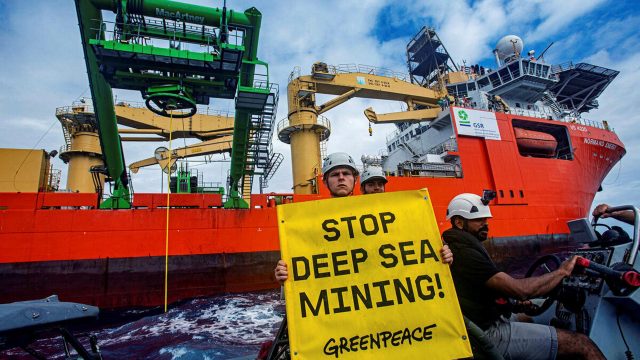When Kofi Boateng, a fisherman from Jamestown, casts his net into the Atlantic Ocean, he does so with a sense of ancestral duty. His family has lived off the sea for generations, their livelihoods intricately tied to its rhythm. But recently, whispers about deep-sea mining (DSM) have cast a shadow over Kofi’s optimism. “They say it can bring money,” he says, shaking his head. “But what happens to us if the fish die? What will I leave for my children?”
Kofi’s concerns are not unique. Across Africa, communities like his stand at the frontline of a heated global debate about DSM. This practice, which involves extracting valuable minerals from the ocean floor, has been hailed as a potential economic boon for resource-rich but cash-strapped countries. However, its implications extend far beyond immediate financial gains.
A legacy of exploitation
Africa’s history with resource extraction tells a story of exploitation and inequity. During the colonial era, vast swaths of the continent’s wealth were siphoned off, leaving behind environmental degradation and fractured communities. DSM threatens to repeat these injustices on a new front.
Advocates for DSM argue that it offers African nations a chance to diversify their economies. Contracts for exploration and extraction are already being awarded in international waters, including parts of the Atlantic seabed that hold deep cultural and historical significance. But critics warn that these arrangements often favor foreign corporations, leaving local communities with little more than polluted waters and shattered ecosystems.
The risks are not hypothetical. Mining activities could destroy marine habitats that have taken millennia to form, while sediment plumes from operations threaten to suffocate marine life and disrupt vital food chains. For countries like Ghana, where fishing contributes significantly to both GDP and food security, the stakes are alarmingly high.
A clash with conservation
African nations have long championed global environmental agreements, from the United Nations Convention on the Law of the Sea (UNCLOS) to the Kunming-Montreal Global Biodiversity Framework. These treaties underscore the need for sustainable management of marine resources, emphasizing conservation over exploitation.
Yet, by endorsing or even contemplating DSM without comprehensive scientific understanding of its impacts, Africa risks undermining these commitments. Studies have highlighted the potential for DSM to exacerbate biodiversity loss, disrupt carbon sequestration processes, and jeopardize global climate goals. This stands in stark contrast to initiatives like the Paris Agreement, which seek to curb environmental degradation.
“Africa has always been a voice for fairness and sustainability in ocean governance,” says Dr. Ama Owusu-Darko, a marine ecologist at the University of Maritime Studies. “Allowing DSM to proceed unchecked would be a betrayal of that legacy.”
The human and cultural cost
Beyond environmental concerns, DSM poses a threat to Africa’s cultural heritage. The Atlantic seabed, for instance, is home to remnants of the Middle Passage—underwater burial sites that bear silent witness to the transatlantic slave trade. Preserving these sites is not just a matter of history but of identity and justice for millions of Africans and their descendants worldwide.
“These waters hold our stories, our pain, and our resilience,” says Nii Adjei, a cultural historian from Accra. “Mining them would be like tearing pages out of a history book we can never rewrite.”
The case for a moratorium
Recognizing these multifaceted risks, global conservation groups have called for a moratorium on DSM. Such a pause would allow time for more comprehensive research into its long-term impacts and for the development of equitable governance frameworks.
For Africa, supporting this moratorium aligns with its commitment to global sustainability goals. It also provides an opportunity to negotiate better terms for resource management—terms that prioritize the well-being of its people over the profits of multinational corporations.
A call to action
Leaders like Kofi Boateng are already advocating for caution, even if they don’t phrase it in policy terms. “The sea has fed us for generations,” he says. “If we kill it, we kill ourselves.”
African governments must listen to voices like Kofi’s. They must prioritize long-term sustainability over short-term gains, ensuring that ocean resources remain a common heritage for all humanity. By doing so, they can honor their legacy in ocean governance while safeguarding the future for generations to come.
The time to act is now. Africa must chart a course that respects its environment, its history, and its people—before the tide turns irreversibly against us.
Report by Portia Afia Inkoom. This report was supported by SOA Ghana Hub.
Send your news stories to newsghana101@gmail.com
Follow News Ghana on Google News















